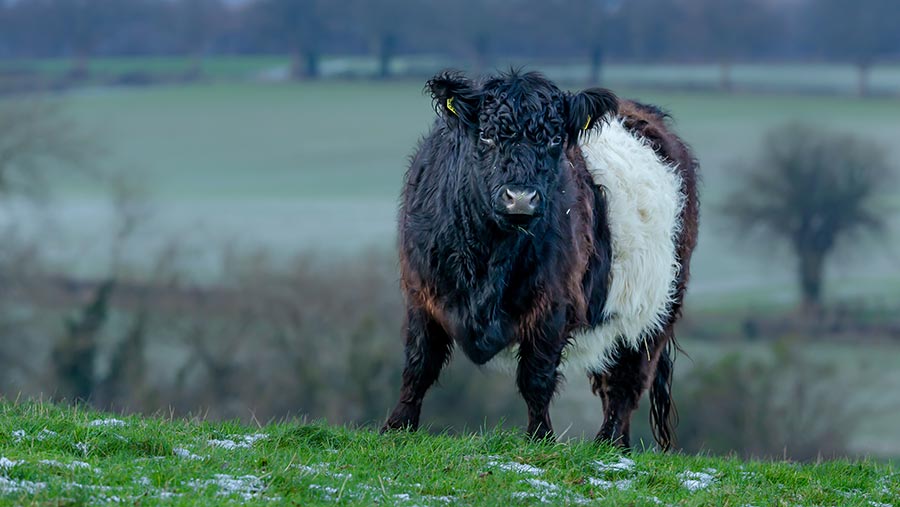Opinion: Ill-informed views threaten cattle species survival
 © Anne Coatsey/Adobe Stock
© Anne Coatsey/Adobe Stock When I was young, my mother had various reasons for denying me a pet, but she evidently thought this was the clincher: “You’ll only get upset when the flipping thing dies.”
Several decades and numerous deceased cats and dogs later, I can confirm that Mam was right, but only about the getting upset bit – they were never “flipping things”.
See also: Opinion – Farm support should help real people doing real jobs
Having established that I am not an unfeeling monster when it comes to the death of pets, what about farm animals?
I consider myself privileged to have the opportunity to spend time among them.
At the farm in Cumbria, the first Belted Galloway calf of the year is on the ground. He is outrageously cute, skipping around with his tail in the air.
It is a delight to be snuffled by friendly heifers while I scratch their necks.
Discovering that bulls make little happy snorty noises when they are thoroughly enjoying a good brushing was a revelation.
Of course, it’s not all sweetness and light. It is no fun feeding stock on the fell in horizontal hail.
I soon exhaust the charms of being inches from a cow’s backside, holding her tail vertical to stop her kicking while her udder is stripped out for mastitis.
The intense anxiety caused by TB testing is horrible. Taking a trailer of bullocks to the abattoir is always a solemn occasion.
I’m not out with the herd every day and I don’t know each animal individually, but given that I like the cattle and enjoy spending time with them, why am I not prostrated by grief at the thought that sooner or later most will end up on someone’s plate?
It is because I have come to appreciate that breeding, raising and slaughter are all part of a cycle necessary for the purpose of providing food, and this secures the continuance of the breed. Would Belties exist at all if we didn’t eat them?
The farm’s Belties are wonderful creatures. They turn rough pasture into excellent beef.
They have been bred to live on the hills all year round, however harsh the weather, calve themselves outside and be a pleasure to handle.
With goodness knows what around the corner in terms of geopolitical upheaval and climate change, it would surely be reckless to risk losing a valuable food source whose grazing patterns also enhance biodiversity.
The same goes for other farm animals – can we afford to discard traits honed by careful breeding which may prove useful in the future?
Cattle seem to arouse strong, if ill-informed, opinions. Either they are evil, methane-belching planet-destroyers or dignified, intelligent creatures which do not deserve to be “cruelly” exploited in any way, let alone killed and eaten.
But the result if either view prevailed would be far fewer cattle, or even none at all.
Keeping a few specimens to be gawped at in a zoo is hardly likely to create a sufficiently diverse gene pool to ensure the health or longevity of the species.
My conclusion is that while individual animals dying is not a cause for rejoicing, what would really cause me to “get upset” is if – in response to pressure from noisy factions – our livestock were allowed to die out completely because of a collective failure to value what they have to offer.

